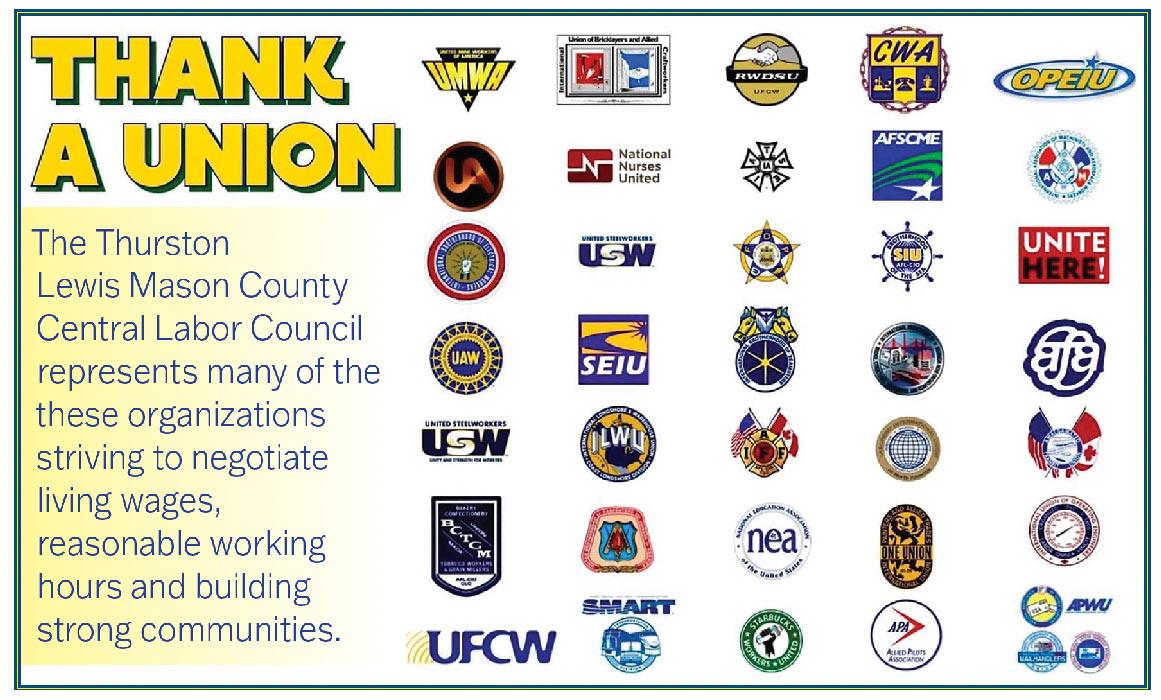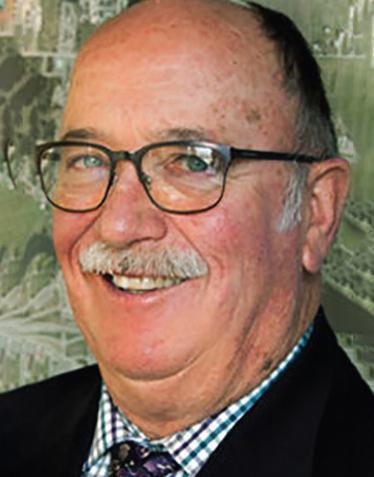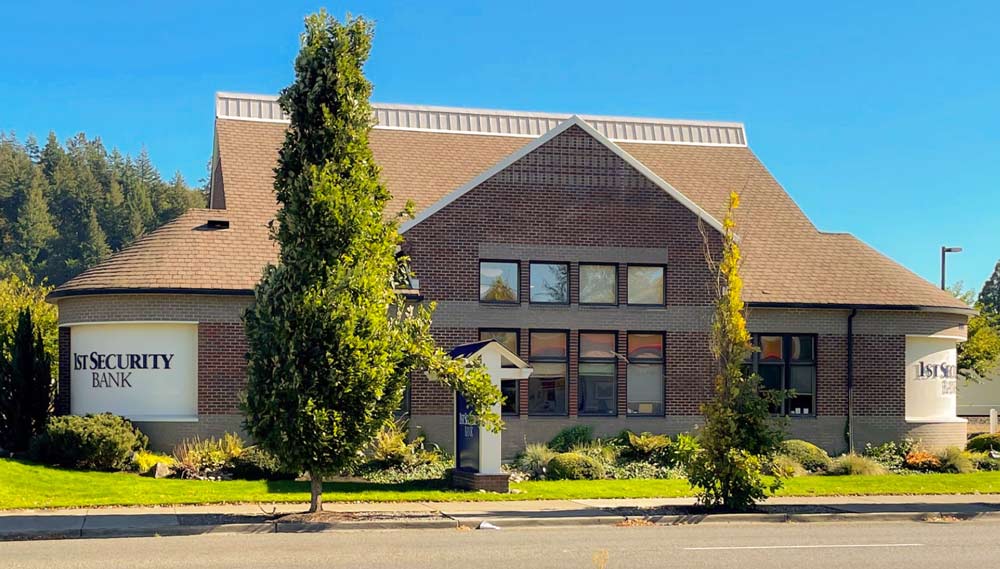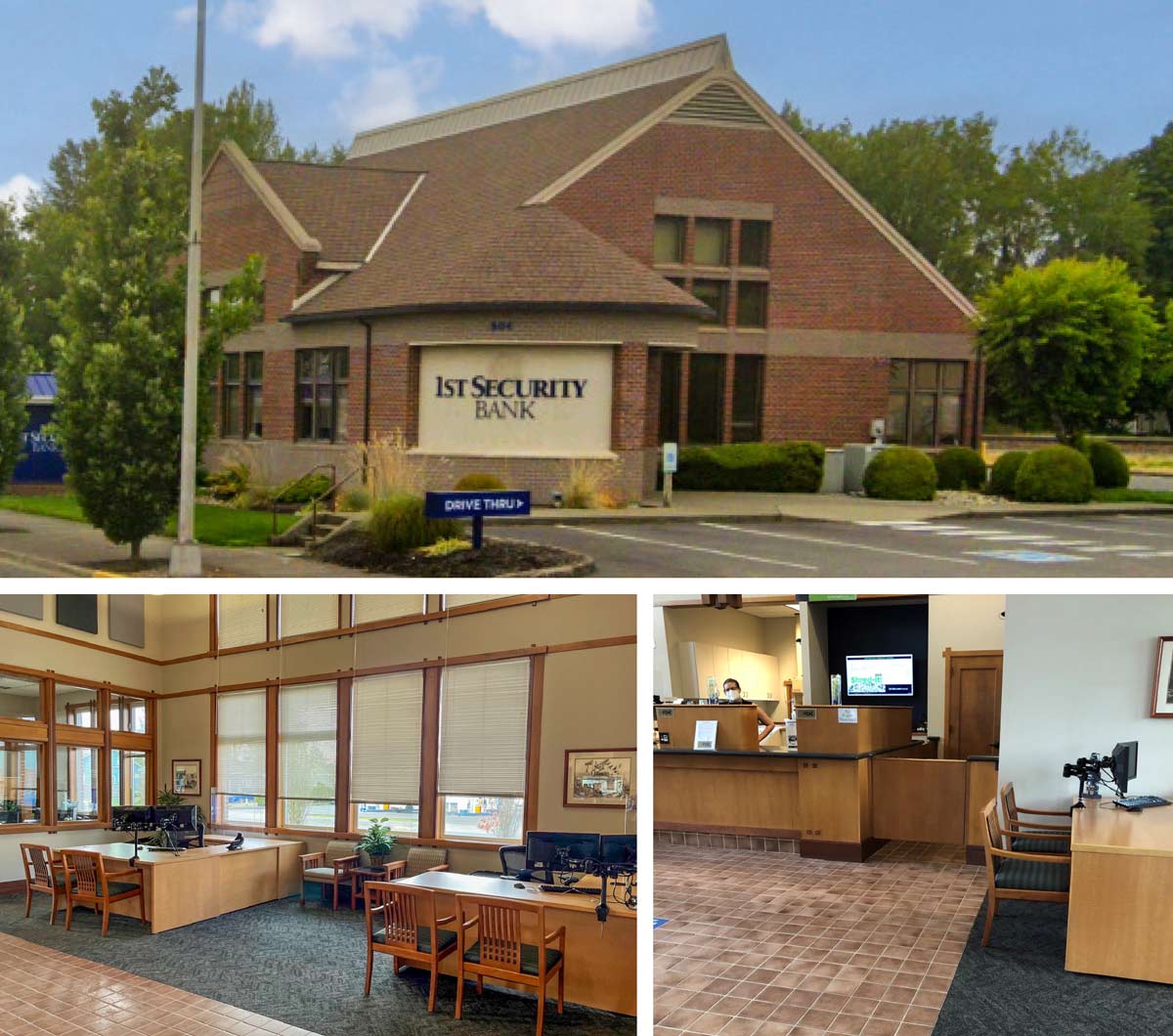From Forest Waste to Jet Fuel
Effort Underway To Tap Into Unused Wood Waste And Also Growing Feedstock, To Power Emerging Nanocellulose Industry
By the Economic Alliance of Lewis County
When a logger cuts down and harvests a 45-year-old fir tree, left behind is about 18% in forest residue, languishing on the forest floor, and not only wasted, but adding to the understory of fuel that can power out-of-control wildfires.
An emerging science aims to “harvest” the leftover biomass and turn it into eco-sensitive green jet fuel and other chemicals, including such products as fire starters, typically used by campers and to start home fireplaces. The expensive-to-purchase xylitol, a substitute and healthy alternative to sugar, is also a possible byproduct. This equates to more jobs.
A small briquette fire starter business located in Morton, for example, could employ around 25 jobs, and keep another 20 or so loggers working and profitable. A plant to transform the biofuel would need to be located close to the wood waste to keep transportation costs in check.
“We’ve been talking about this for a long time at the Economic Alliance,” said Bob Guenther, the Thurston Lewis Mason Central Labor Council President and also a longstanding member of the Economic Alliance of Lewis County executive board.
The Alliance has joined in the effort, applying for a grant from USDA Rural Development for $100,000 for an independent study of the possibilities, including creating tax breaks for needed to attract private sector investhe industry. An independent study is tors.
This joins an expensive project already underway. Under the Obama Administration the University of Washington and Washington State University were each granted $40 million for biomass conversion studies. UW studied converting hardwood waste, WSU focused on softwood. That money has been spent.
A professor at UW leading the research needed a bit more funding, and turned to the TransAlta Coal Transition Committee, of which Guenther is a member. That group gave UW another $150,000 to keep the project moving forward. In all, UW asked for an additional $600,000. Guenther went to work. Sen. John Braun, R-Centralia, secured a proviso for another $300,000 for the study. Another funding source came from the 0.9% Committee which put in $130,000 (thanks in large part to Lewis County businessman Buck Hubbert), and the state Department of Commerce came up with the rest of the dollars.
Guenther said such a biofuel plant could lessen the impact of wildfires, create jobs and fully use wood byproducts from the forest, instead of letting the waste lay fallow.
The Economic Alliance of Lewis County has assisted in obtaining $100,000 in grant money to seed an effort to fund a feasibility study and eventually create a Bioeconomy Development Opportunity Zone (BDOZ) in East Lewis County, specifically the Morton area. The zone would bring tax breaks to loggers and truckers and other industry players, and to a company willing to build a wood waste to jet fuel company.
“Morton is one of the points we’re concentrating on because of all the wood waste generated in that area,” Guenther said.
The project has garnered widespread support, including from the Alliance.
“It fits into our long-term economic strategy for Lewis County,” said Economic Alliance Executive Director Richard DeBolt. “It would utilize the natural resources in our community.”
In a letter of support for the project by Hopkins Forestry based in Mineral, Dick and Paula Hopkins wrote this past month to Helen Price, the state director of USDA Rural Development.
“We are supporting the Economic Alliance of Lewis County’s FY2023 Rural Business Development Grant Application for a Bioeconomy Development Opportunity in the vicinity of Morton in East Lewis County,” they wrote.
Hopkins Forestry is a small forestry consulting and contracting firm which works with logging companies, small forest landowners and tree service contractors.
“We are very aware of the need for a processing and energy-producing facility in East Lewis County,” the letter states. “In Morton there are currently two sawmills and a chipping pulp facility. Fifteen miles to the west is another sawmill. These facilities can neither process nor market the excess small and defect wood. … Our logging contractors — both final harvest and thinning contractors — leave piles of woody biomass at the landings and within the units with every operation. Tree service companies primarily haul their limbs and dead wood to landfills.”
The Hopkins, in their letter of support, state that wood waste could be made profitable if it could be transformed into jet fuel within a 30-mile radius of a BDOZ located in Morton. In addition, invasive species such as Scotch broom and knotweeds could be used in a bio-diversity operations facility.
“If these feedstocks could be converted to energy, we can attack invasive species while generating electricity and steam,” they wrote.
Bark-Beaters, a company located in Onalaska, in another letter of support, said a BDOZ designation would create two new jobs in the company. Tim Saylor, president of Service Saw Workwears in Chehalis, also said a new tax-break zone would add to more family wage jobs “just within our company.” Rich Lennox, president of Cascade Trader, which sells logging and construction equipment out of its Chehalis office, said the creation of a biomass plant in East Lewis County would add six to 10 positions to his company “in fairly short order.”
Jason Spadero, the executive director of the Washington Forest Protection Association, is also in favor of the tax-break designation.
“We support conducting the inventory to find out about what new feedstock is available in the Lewis County region for utilization of forest biomass,” as stated in a letter to USDA Rural Development. “If the opportunity presents itself, it could lead to a new pellet plant that produces jobs, increasing the number of local family wage jobs in the region. If we can expand the markets, it will be good for the economy, the environment and create local family wage jobs in the region.”
Research led by University of Washington professor Rick Gustafson states there are multiple benefits of commercializing nanocellulose technology to bring a low-carbon biobased industry to Washington, specifically within the Chehalis Basin.
These benefits include “ … providing high paying jobs in regions of Washington that have been impacted by declines or loss of industries such as mining, agriculture and forest products. … A research breakthrough at UW resulted in a process to produce nanocellulose at $3/kg with similar characteristics of commercially available nanocellulose that sells currently for as much as $1,000/kg.”
The Chehalis Basin is ideal, according to the UW research, because of its considerable available acreage to grow feedstock, it already has an “excellent infrastructure and well trained workforce, there is strong support for expanding manufacturing in the region, and such a high-tech plant fits in with the emerging hydrogen industry in Lewis County.”
The research also states widespread planting of biorefinery feedstock could help stem Chehalis River flooding events.
UW has already received a Department of Energy grant to develop a nanocellulose business plan to develop materials to attract investors. Also needed, according to professor Gustafson, is pilot research to produce kilogram quantities of the material and assess its performance.
UW is asking for $2 million in federal funding to build a facility at the Seattle campus, along with $600,000 from the efforts to raise cash by Guenther.
“Commercialization of a nanocellulose production facility will be a transformative first step in establishing multiple biobased industries in the Chehalis Basin,” Gustafson wrote in a synopsis of the research.
Research led by Washington State University by the Northwest Advanced Renewables Alliance stated one biofuel plant located in the forested region between the Cascade Mountains and Pacific Ocean would create more than 1,900 new jobs, including biomass harvest, transportation and conversion into fuel. The total economic benefit is estimated at $650 million. The bottom line?
“It would enable us to be better stewards of the land by utilizing the forest that’s not being used,” Guenther said.
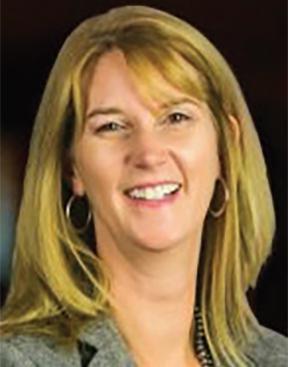
Mayor of Centralia
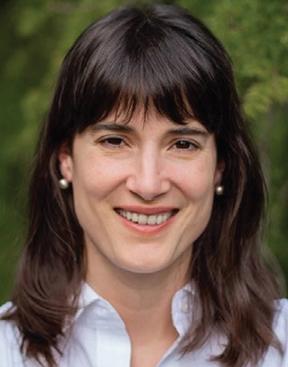
3rd Congressional District
Seminar Features Local Women Business Leaders
The Women in Business Seminar Features Keynote Speaker Centralia Mayor Kelly Smith-Johnston and Guest U.S. Rep. Maria Gluesenkamp-Perez
By the Economic Alliance of Lewis County
The Economic Alliance of Lewis County presents the Women In Business Seminar 1 to 3 p.m. Wednesday, March 15, at The Vintage-Washington Hotel, located at 545 N. Market Blvd., Chehalis, featuring keynote speaker Centralia Mayor Kelly Smith-Johnston.
The informative gathering features a panel of speakers, including local business leaders Coralee Taylor of The Chronicle and Silver Agency, Amanda Singleton of Rainier Connect, Suzi Swope of Gurl Gone Green and Samantha Magnuson of LC Coffee & Nomad Outfitters.
A special add-on to the event is U.S. Rep. Maria Gluesenkamp-Perez, from the 3rd Congressional District.
Dolly Tardiff, Business Development Center and Program Manager for the Alliance, said the seminar is meant to be an uplifting and positive experience.
“This event will empower women and give them the knowledge to overcome obstacles in the workplace,” Tardiff said. “Do what you love, and success will follow.”
Come join the Economic Alliance of Lewis County for an informational, uplifting, empowering discussion about navigating through business between local women leaders.
The event is a partnership with United Way of Lewis County and Women United.
Pre-register by calling 360-748-0114.
Kelly Smith-Johnston
Kelly Smith-Johnston was appointed the mayor of Centralia in January 2022. Smith-Johnston is the founder of Clarity Consulting firm, which has conducted work with state and local governments, as well as for-profit and nonprofit companies. She’s formerly worked for Thurston County, Pierce Transit and the Cispus Learning Center. Professionally, through her consulting firm, she has worked to build a cohesive coalition around emerging energy projects in Lewis County, from a hydrogen refueling station in Chehalis to a renewable energy transportation corridor of charging stations between Lewis County and Yakima along U.S. Highway 12.
She also helped organize Lewis County’s Housing Policy Summit and has advocated for local solutions to address current housing disparities plaguing Lewis County.
U.S. Rep. Maria Gluesenkamp-Perez
Rep. Marie Gluesenkamp-Perez is a fifth-generation Washingtonian, former small business owner, and working mom who serves as Southwest Washington’s independent voice in Congress. As the daughter of an immigrant and pastor, Gluesenkamp-Perez learned by example the importance of working for her community.
Gluesenkamp-Perez earned her degree in economics at Reed College and co-owned an auto repair and machine shop with her husband, Dean, before coming to Congress. They were able to purchase their building with the help of an SBA loan and know the difficult choices small business owners often need to make.
In Congress, Gluesenkamp-Perez is fighting to make progress on the issues facing Southwest Washingtonians, defend democracy, and level the playing field for working families like hers. She serves on the House Agriculture Committee and the House Small Business Committee in the 118th Congress. Gluesenkamp-Perez lives in rural Skamania County with her husband and young son.
Alliance Continues Expansion of Tourism Website
Discover Lewis County Hyper-Focused on Attracting Visitors to Our County
By The Economic Alliance of Lewis County

“We have made Discover Lewis County more modern, more slick, more user friendly,” said Todd Chaput, Economic Alliance Initiative’s Program Manager and overseer of the project. “We want it to be a website where you go to in the planning phase of a visit — to make it a planning tool.”
The Alliance has signed a three-year contract to run the website, which focuses on travel destinations, lodging and restaurants in Lewis County. The funding for The Alliance was approved by the Lodging Tax Advisory Committee (LTAC) from unincorporated portions of Lewis County.
LTAC dollars stipulate the money must be used to bring in visitors to Lewis County, by promoting blockbuster attractions such as Mount Rainier, Mount St. Helens and the Goat Rocks Wilderness area (Goat Rocks Wilderness is a part of the volcanic Cascade Mountain Range in Southwest Washington located between Mount Rainier and Mount Adams). East end areas of Lewis County such as Packwood and Randle are also targeted as tourism draws. Chaput said the county has experienced “tremendous growth in the Airbnb industry, generating lodging dollars,” with many located in East Lewis County.
Once tourists arrive in Lewis County, the Discover Lewis County website offers QR codes that link to area events, activities and tourism-related businesses such as restaurants and shops.
“We’ll get them here and then let the market take over,” Chaput said.
The Alliance was granted $180,000 per year to run the website and expand its exposure in the county, the region, across the state, the nation and including international publicity.
LTAC will have yearly approval oversight of the funding, which began Jan. 1.
To coordinate efforts, The Alliance hired Lenee Langdon as Tourism Alliance Program Coordinator. Along with shepherding Discover Lewis County, Langdon will also promote tourism events throughout Lewis County, such as festivals and parades. In addition, Annalee Tobey, Executive Director of the Chehalis Community Renaissance Team, will help with the direction of the project and is an advisor, including working with essential social media efforts. The Silver Agency will also assist with the website.
Chaput said the infusion of talent such as Tobey, Langdon and The Silver Agency, has already created “a rocking social media” reaching out to potential visitors.
The Alliance has created a sub-agency called the Tourism Alliance. Chaput will oversee the project, along with a steering committee of 15 to 20 advisors.
The specific goals the team is working on, Chaput said, are to develop a strategic plan to increase destination travel from the outside into Lewis County, create higher visibility and focus on destination marketing.
He said primary stakeholders driving the new Discover Lewis County are owners and operators of restaurants, vacation rentals and hotels, which will form representatives of each segment in sub-advisory roles. The stakeholders are set to hold their first meeting later this month, and eventually transition to quarterly meetings.
Chair’s Corner
Cautiously Optimistic
Lewis County’s Economy Poised for Growth
By Luke Moerke
Chair – Economic Alliance of Lewis County
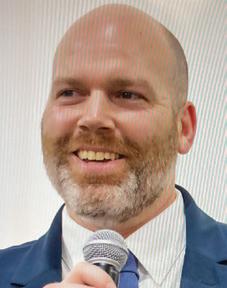
Chair – Economic Alliance of Lewis County
“The work must be done now. We cannot grow slack in the preparation for these things ahead.” – Luke Moerke
Spring is coming, and with it, cautious optimism.
The first day of spring is Monday, March 20, but nine days away, when the spring equinox finally wakes up in the Northern Hemisphere.
But we’re not quite there.
We’ve entered March, and though the snow and ice linger, brighter days are already coming. The promise of green shoots and warm, sunny days draws us in, and we welcome the passing of the seasons.
This winter, the work flow in my office slowed like a normal winter for the first time in several years. It was a welcome respite from the tyranny of the urgent, but it definitely gave me some pause as well.
The economy has slowed largely due to interest rates and the Fed is trying to slow inflation, as they should.
According to the Board of Governors of the Federal Reserve System March 2023 Monetary Policy Report, inflation has slowed since summer of last year, supply chain woes have lessened, as have energy prices. The labor market is tight. We have job gains and low unemployment rates. Yet the Fed continues to raise interest rates, up 3 percentage points since June.
We are likely, according to the report, to have to wait awhile until the economy turns robust again.
The report states, “The Federal Reserve is acutely aware that high inflation imposes significant hardship, especially on those least able to meet the higher costs of essentials. The Committee is strongly committed to returning inflation to its 2% objective.”
Hopefully they will not go overboard, and cause investors to shutter projects.
Therein lies the thin line we all walk. Will the economy overcome the interest rate increases and the affliction of inflation? More time will need to pass before we know the outcome.
I am cautiously optimistic, as I mentioned earlier. Lewis County has much to be confident about. There is a lot going on at the Economic Alliance of Lewis County, and with it, a lot all over our county.
If we can keep the hand to the plow and do the work needed in preparing for growth, jobs and attracting new innovative businesses to Lewis County, I think the future will be very bright.
But the work must be done now. We cannot grow slack in the preparation for these things ahead. We still need infrastructure and housing dearly, and if we don’t figure out ways to provide more of it, and plan for the future, some of the opportunities may look the other way.
I’m hopeful that we can continue to work toward that goal. As the excitement of spring brings with it new hope and new life, we have exciting things coming for our county. Let’s continue to prepare for it.
•••
Luke Moerke owns Exodus Engineering, Inc., and is chair of the
Board Member Spotlight
Bob Guenther
Q: How long have you been a member of the Economic Alliance of Lewis County?
A: I have been a member for more than 20 years.
Q: Why did you join The Alliance?
A: I joined the Economic Development Council, now the Alliance, because I wanted to help a local organization. I belonged to a statewide group prior. I wanted my contributions to help my community. I was the owner of a machining and manufacturing business.
Q: What do you enjoy most about volunteering?
A: I enjoy the volunteer aspect because I believe it helps the community be stronger (apprenticeships for youth and incumbent workers, we are never to old to learn).
Q: What do you love most about your industry?
A: Enjoyed the machining and manufacturing business because I said many times we can fix anything except a broken heart.
Q: How do you define success?
A: I define success by maintaining the will to persevere to meet a goal through the use of good science and practical application.
Q: Who inspires you?
A: The Constitution of the United States that has defined who we are as people, and freedom of the press.
Q: What is one thing, either industry-related or not, you learned in the last month?
A: I have learned in the last month that if we keep our eye on the goal we can get to the finish line. We have to stay focused on what we are trying to accomplish.
Q: What’s the last book you read?
A: “Undaunted Courage,” the story of the Lewis and Clark Expedition, “Of man and Mountains,” the story of William O Douglas, and am currently reading “These Truths,” a history of the United States, by Jill Lepore.
Q: What is your favorite meal?
A: I like any meal my wife Judy fixes.
Q: What do you do for pleasure outside?
A: I enjoy my family’s success, cutting lumber, road trips, hunting, fishing and clam digging.
Q: What is the favorite car you have ever owned?
A: 1964 Chevy Super Sport. $3,200. Have car prices changed?
Q: What is something about you (a fun fact) that not many people know?
A: I’m trying to grow mushrooms on our tree farm. So far I am buying them from the store.
Property Spotlight
1st Security Bank
604 South Tower Ave., Centralia
For Sale or Lease
FEATURES:
-
Drive thru lane —existing, functional
-
Building constructed in 1996
-
Tax parcel — 000327002000
-
3,280-square-foot building
-
0.62-acre lot
-
Connected to sewer, natural gas
-
High-quality building withsubstantial exposure
-
Available for immediate occupancy
-
Existing furniture negotiable
-
Not in a flood plain
Kidder Mathews Property Sales and Managment
Todd Battison
206.296.9621
[email protected]
Evan Parker
360.556.0107
[email protected]
For information on this property and others available throughout Lewis County (or to list your industrial/commercial property for sale), contact Economic Alliance of Lewis County External Relations Manager Eric Sonnenberg at [email protected] or
208-206-5407.
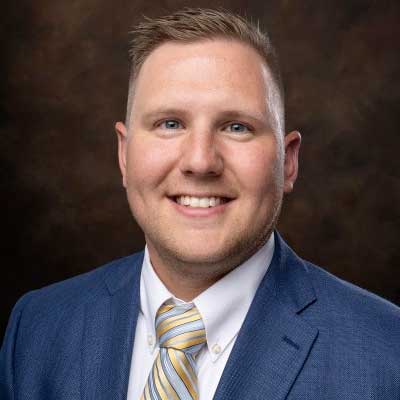
Eric Sonnenberg
Economic Alliance of Lewis County External Relations Manager
Women in Business, Manufacturers Workshop and Inclusive Career Fair Among Programs Offered by the Alliance
By The Economic Alliance of Lewis County
Along with this week’s upcoming Women in Business Seminar at The Washington Hotel from 1 to 3 p.m. Wednesday, March 15 (see front page of The Economic Report for details), the Economic Alliance of Lewis County is planning several summits and forums throughout the rest of 2023.
Manufacturers Workshop with Impact Washington
Thursday, April 13 at Centralia College
10 a.m. to 2 p.m.
“Build a Successful Growth Plan” is a workshop to create a customized and relevant roadmap for your manufacturing business. The growth roadmap workshop will help your organization understand and prioritize the growth opportunities in your business so that instead of running all over the place trying to fix everything, you can identify and prioritize the areas that will generate the most immediate impact and success.
This no-fee, four-hour, in-person workshop will produce the following outcomes:
- Identify your most significant challenges to growth, as discovered through Impact Washington’s customized business evaluation designed just for manufacturers.
- Discover high-value solutions to address your challenges customized to your manufacturing needs.
- Learn best practices for common growth challenges that small-and-medium manufacturers face.
- Schedule a 1:1 follow-up with an Impact Washington representative to explore your growth roadmap to match opportunities with solutions (immediately following the event or later at your convenience).
- Meet other manufacturers with shared challenges.
- Engage with eco-system partners who can provide services and support your organization.
Impact Washington is a non-profit organization dedicated to supporting Washington manufacturers to work smarter and to prosper. Since 1997, the group has delivered 3,000 value-driven improvement solutions to more than 1,500 of Washington’s small and medium-sized businesses, helping them compete and grow.
Who should attend?
- Business Owners
- Executives
- General Managers
- Plant Managers
- Other critical decision makers
To claim your spot:
Contact Dolly Tardiff, Economic Alliance of Lewis County Business Development Center-Program Manager
360.748.0114 [email protected]
Inclusive Career Fair with the Lewis County Autism Coalition
Wednesday, April 26 at the Centrala College TransAlta Commons
1 to 3 p.m.
Lewis County will be hosting its first Inclusive Career Fair on Wednesday, April 26, at Centralia College’s TransAlta Commons.
The Career Fair will be open to the public from 1 to 3 p.m., with a lunchtime workshop for employers prior to the event. The Inclusive Career Fair is hosted in partnership with the Economic Alliance of Lewis County and sponsored by the Centralia – Chehalis Chamber of Commerce.
All are welcome to attend, with an emphasis on individuals who are neurodiverse, have developmental disabilities or differences, high school students with an IEP or a 504 plan, or anyone who has had difficulty accessing employment through the typical application process.
The event is free for employers to register, and lunch will be provided. The Lunch and Learn workshop prior to the event will cover elements of inclusive hiring, including information about supported employment and business benefits.
Attendees will be able to meet with various employers and industry representatives and are encouraged to bring several copies of their resumes. Volunteers will be available throughout the event to offer resume advice to attendees.
Cultivating Inclusion — Lewis County promotes a welcoming culture for people of all abilities, in meaningful ways that inspire, support and celebrate inclusion.
Cultivating Inclusion supports and stands with people with physical and or developmental/behavioral differences, people of color, LGBTQ+, and indigenous communities. They stand against racism, discrimination, and systemic oppression — by providing a safe place for voices and concerns to be heard.
School Micro-Grants
Inclusion means to promote or create acceptance and empowerment of students who have intellectual, behavioral and/or physical differences. Funds can be requested to support classrooms, equipment, staff development or another area that supports inclusion in school and education.
Five Lewis County school districts (Toledo, Onalaska, Mossyrock, Centralia and Chehalis) participate in joint planning and networking, professional development, parent support and student awareness activities. Cultivating Inclusion assists to create a welcoming culture for social inclusion within each school district.
Work
Interested businesses promote inclusion to the public through onsite sticker display, training of employees in inclusion principles and implementation of inclusion practices. Priority businesses are those with significant retail customer contact and/or interest in hiring adults with differences.
Community
Speakers promote inclusion through presentations at meetings of service clubs, faith communities and child care providers. Agencies support inclusion through a sticker display and promoting inclusion within their organizational practices.
Employers seeking to participate in the event can sign up at https://www.lcautism.org/careerfair/.
Realtor Forum
Wednesday, Oct. 18
1 to 3 p.m.



